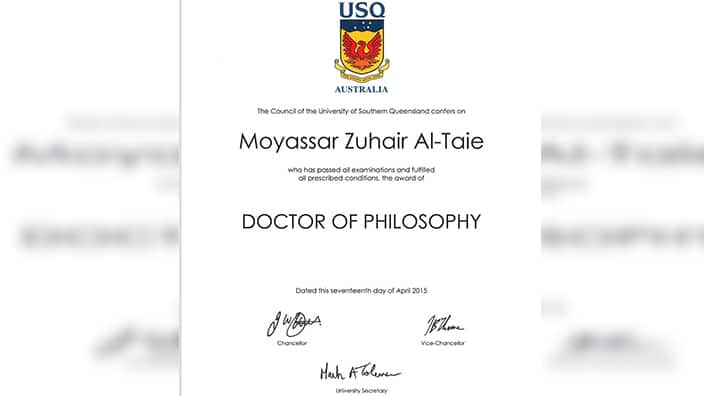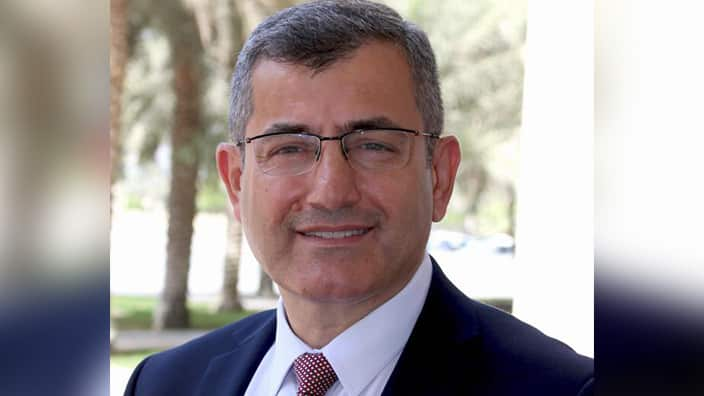To many, immigrating to Australia is a dream. It is a land of opportunities, a stable country where one has the right to dream. Yet, after arriving in Australia, Dr Moyassar Al-Taie, an Australian Iraqi, took the decision that very few think of taking: He left Australia.
“Australia offers numerous opportunities, but not for Muslims and Arabs”
"Australia offers numerous opportunities, but not for Muslims and Arabs," Dr Al-Taie tells SBS Arabic24.
"I was clearly discriminated against as the first filter in the employment process is the name.
"Arabic names like Mohammad and Abdullah and most Middle-Eastern names don’t usually pass through the first step even if you are Einstein!”
Dr Al-Taie is not alone in this opinion. A recent survey released by a refugee and migrant resettlement agency AMES also found that a foreign-sounding name is among the barriers new arrivals to Australia face in finding work here.
The survey, canvased 357 migrant and refugee jobseekers at Hume and Dandenong, in Melbourne, and at Auburn and Bankstown, in Sydney’s west, during July and August 2017.
In focus groups conducted as part of the survey, several respondents who cited ‘not getting an interview’ as a barrier said they believed having a foreign-sounding name was a factor in this.
Dr Moyassar Al-Taie obtained his Ph.D in Business Administration from the University of Southern Queensland and possesses over 15 years of experience as a university lecturer in Iraq and Australia. Yet landing a job in Australia was no walk in the park.

“When I completed my PhD in Australia, I was appointed by Southern Queensland University as an adjunct unpaid lecturer, which gave me the impression that finding a paid, full-time job would be easy," he said.
Dr Al-Taie did not restrict his job applications to a specific state. He also expressed interest to work in many educational institutions and universities across Australia.
“My friends thought I was kidding when I applied to 4 different posts at Charles Darwin University, but I was willing to relocate.”
80 applications and no job

After applying for over 80 jobs across Australia, Dr Al-Taie lost hope in finding any decent job and decided to apply for jobs overseas.
He was fortunate to find an employment opportunity in the city of Sharjah, in the United Arab Emirates, and decided to relocate there, leaving his family behind.
"I’m detached from my family; they’re in Australia and I’m overseas because I couldn’t find a job that could provide me with a decent living," he says.
"I’m detached from my family; they’re in Australia and I’m overseas because I couldn’t find a job that could provide me with a decent living."
New research conducted by VicHealth in collaboration with other organizations suggested only 45 per cent of university students from migrant backgrounds find full-time jobs after graduation. In contrast, 69 per cent of Australian-born students successfully landed jobs upon university degree completion.
“I’m a lecturer of Human Resources and research showed the dominant group in the workplace (Anglo-Saxons) create a glass ceiling effect," says Dr Al-Taie.
He adds, "look around and you will see Arabs doing the lower level jobs such as taxi drivers, security officers, and halal slaughtermen."
Dr Al-Taie believes that actions undertaken by a minority of Arabs are affecting the community as a whole.
“Unfortunately, we are being judged for actions undertaken by a small percentage of our ethnicity.”
"We are as good as Chinese, Nepalese and Indians in terms of technical knowledge and language levels, but they’re favoured by employers," he says. "Unfortunately, we are being judged for actions undertaken by a small percentage of our ethnicity."
The struggle of finding a job in Australia is a reality to many other Arab community members. In a talk-back segment on SBS Arabic 24’s morning show, many callers expressed their frustration.
Shawqi said that since obtaining his Master's degree’s in 2013, he hasn’t been able to secure a job in his field.
"I have a bachelor degree in Journalism and Media. However, I could not find a job in my field so I decided to go for a Masters degree in International Community Development. Upon graduation in 2013, I have not found a job ever since and now I’m driving an Uber," says Shawqi.
Another caller, Alaa, believes that local experience required by employers is the hurdle for Arab immigrants.
"The problem with Australia’s skilled migration scheme is that employers require local experience," she said. "We do possess long years of expertise in our fields in the Arab World."
The AMES survey also found that almost a third of CALD jobseekers (29 per cent) felt the same way - believing that a lack of Australian experience was the biggest barrier to finding work here.
"This is the biggest obstacles migrants face," Alaa said.
"Moreover, the Department of Immigration granted me extra points for my age bracket but employers prefer younger people with little experience."
Despite these testimonials, there are still many Arab migrants who are succeeding in Australia.
Although some migrants face difficulties in finding decent jobs in Australia, Australians still believe that multiculturalism is good for the country, as the newly released Scanlon Foundation's Social Cohesion yearly report, which showed that 85 per cent of those surveyed believe in that.
